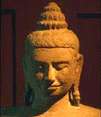THERE are three types ordtak
 |
 |
 |
 |
Antall ordtak er 2100216
varav 2121434 på nordiska
Ordtak (2100216 st) Søk
Kategorier (3944 st) Søk
Forfattere (201357 st) Søk
Bilder (4592 st)
Født (10498 st)
Døde (3319 st)
Datoer (9520 st)
Land (27259 st)
Idiom (4439 st)
Lengde
Topplistor (6 st)
Ordspråksmusik (20 st)
Statistik
Denna sidan visar ordspråk som liknar "THERE are three types of persons: those, who confess their own faults and mention the excellence of others, are the highest type; those, who highlight their own excellence and decry the faults of others, are worse; those, who parade their own faults as excellence and deride the excellence in others as faults, are the worst. The last type is nowadays most rampant.".
Linkene lenger ned har ikke blitt oversatt till norsk. Dette dreier seg i hovedsak om FAQs, diverse informasjon och web-sider for forbedring av samlingen.
Här har vi samlat citat sedan 1990!
Vad är ordtak?
Hur funkar det?
Vanliga frågor
Om samlingen
Ordspråkshjältar
Hjälp till!
varav 2121434 på nordiska
Ordtak (2100216 st) Søk
Kategorier (3944 st) Søk
Forfattere (201357 st) Søk
Bilder (4592 st)
Født (10498 st)
Døde (3319 st)
Datoer (9520 st)
Land (27259 st)
Idiom (4439 st)
Lengde
Topplistor (6 st)
Ordspråksmusik (20 st)
Statistik
Denna sidan visar ordspråk som liknar "THERE are three types of persons: those, who confess their own faults and mention the excellence of others, are the highest type; those, who highlight their own excellence and decry the faults of others, are worse; those, who parade their own faults as excellence and deride the excellence in others as faults, are the worst. The last type is nowadays most rampant.".
Linkene lenger ned har ikke blitt oversatt till norsk. Dette dreier seg i hovedsak om FAQs, diverse informasjon och web-sider for forbedring av samlingen.
Här har vi samlat citat sedan 1990!
Vad är ordtak?
Hur funkar det?
Vanliga frågor
Om samlingen
Ordspråkshjältar
Hjälp till!
 |
Linkene lenger ned har ikke blitt oversatt till norsk. Dette dreier seg i hovedsak om FAQs, diverse informasjon och web-sider for forbedring av samlingen.
Här har vi samlat citat sedan 1990!
Vad är ordtak?
Hur funkar det?
Vanliga frågor
Om samlingen
Ordspråkshjältar
Hjälp till!
 |

